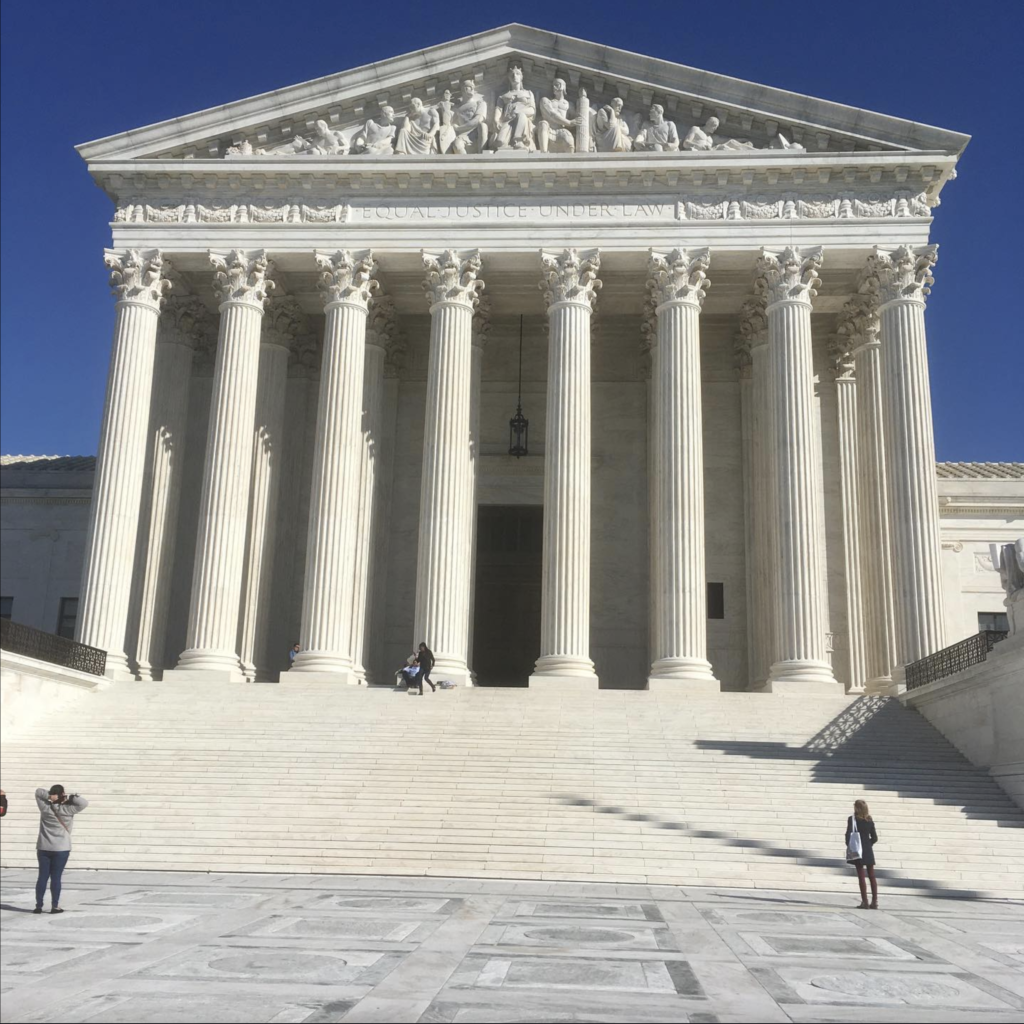Professor John Messmer talks about the overturning of Roe v. Wade
BY: JACOB POLITTE
Managing Editor

The landmark Supreme Court decision in Dobbs v Jackson Women’s Health, which overturned 1973’s Roe v Wade and which ended nation-wide abortion rights left the nation reeling after it was announced last Friday morning.
Later that same day, Meramec Political Science Professor John Messmer spoke to The Montage about the ramifications of the Supreme Court ruling, as well as how the last 50 years have been leading to this moment.
Politics, Precedent, and The Court

Messmer said our justice system is based upon ‘English Common Law’ that above other approaches towards law, respects precedent.
“That doesn’t mean that precedent doesn’t change,” he said. “That we don’t reinterpret things.”
Messmer says that there are dozens of examples of reinterpretations in American history, citing Brown v Board of Education as an example. “There is reinterpretation of what is considered a right, especially [of] a power of government.”
However, Messmer says that what the Supreme Court did on Friday may be unprecedented.
“When it comes to a reinterpretation of what is considered a fundamental, personal right among American citizens […] for the last month, I have been searching for another example of where a fundamental, personal right was provided by the court, interpreted by the court (Messmer says this is the leading judicial authority in the nation) and then taken away by the court. I can’t think of another example of that.”
He continues, “I’m sure serious constitutional scholars can find something. But nothing that is considered so fundamental, so personal, so absolute as the right to privacy […] specifically a woman’s right to privacy and to terminate her pregnancy. Nothing that I can think of that was taken away by the Supreme Court.”
Messmer said that the Brown v. Board Of Education decision couldn’t necessarily be compared to the Dobbs decision. “[People have to] realize what the Brown case did. That reserved an earlier Court decision, the Plessy decision. But what that changed was a power of government.”
He continued, “That’s a big difference than what Roe v. Wade did. And that was provide interpreting [for] a fundamental right to an abortion, based upon a fundamental right to privacy. For that to now be taken away […] I can’t think of another example of that.”
“It always seems to be in the forward gear,” he said. “This is definitely a backward [gear]. We’re going to have women that have less rights than their grandmothers.”
Messmer mentioned that the public may hear criticism towards Democrats for not codifying the Roe decision into law over the last five decades, but he says there are some legal questions as to whether or not Congress can do that.
“Just because Congress can pass something doesn’t mean it’s constitutional,” he said. “There is a question of if codifying abortion is within Congress’ powers.”
He continued, “That’s something you’re going to hear a lot of people say: that’s the way to bring back this right. But what Republicans have made clear is that they’re not going to allow this [codifying] vote in the Senate. And the Senate requires a supermajority because of the crazy use of the filibuster.”
The Democrats, who strongly favor abortion rights, have a 51-seat majority in the Senate but a 60 votes are needed to overcome the filibuster and to officially codify the right to an abortion.
Messmer says that the court has always been political and, to a degree, partisan.
“Philosophical differences pop up all the time,” Messmer said. “The reason it’s more of a question now, and the reason someone is more likely to ask [if the court is more political/partisan] is because our political differences have never been more stark. We’ve never been more polarized.”
He continued, “There’s always been partisanship, there’s always been ideological differences in the Supreme Court. It is heightened now, but only as a function of the fact that politics is more polarized than ever. The differences between members of Congress are more different than ever. And therefore, the differences between two juris’ on the Supreme Court that should have a common, very educated understanding of the constitution can come to such incredibly different conclusions.”
Speaking as to other factors that have led to this decision, and the push for anti-abortion laws, Messmer said, “The Republican party and the conservative moment [moved] steadily more [to the] right and more religious. You add to the mix that they’re more issues that people are concerned about […] because there are more issues, there are therefore more areas that people can disagree with. This leads to us being potentially more polarized.”
He continued, “But if there was one common denominator that bound all conservatives in the last 50 years, it was the dogged determination to overrule Roe v. Wade.”
Clarence Thomas
One comment of particular interest, and inspired widespread panic online, concerns Justice Clarence Thomas’ opinion as documented in the final ruling.
Thomas wrote, “In future cases, we should reconsider all of this Court’s substantive due process precedents, including Griswold, Lawrence, and Obergefell. Because any substantive due process decision is “demonstrably erroneous,” we have a duty to “correct the error” established in those precedents.”
Messmer said of Thomas’ remarks and whether or not the public should be concerned about their implications, “I don’t know what to say to that. There’s a part of me that says ‘No, the general public doesn’t have anything to worry about.’ Though that is a very extremist view, it was part of a concurring opinion, so it didn’t represent the majority of the majority.”
“But,” he continued, “it should not be ignored. And I guarantee that those who are very upset with this decision that want to see the expansion or the return of abortion rights… they’re gonna pounce on that. They’re gonna point to the fact that this represents a significant ideological, different approach towards the Constitution.
He continued, “Clarence Thomas isn’t holding back. And though he represents a minority of that majority opinion, no one, I think, has the right to tell anyone that they shouldn’t be worried [about his comments]. It represents a fundamental change in the approach toward the Constitution. A change we haven’t seen in 100 years.”
What happens now?
Down the road, Messmer said, abortion right have the possibility of being restored via an interpretation by a Supreme Court with different members. That case would have to go through the same process that Roe v. Wade did and be subject to review by a Court with different dynamics.
“Theoretically,” he said, “this all could just happen again.”










